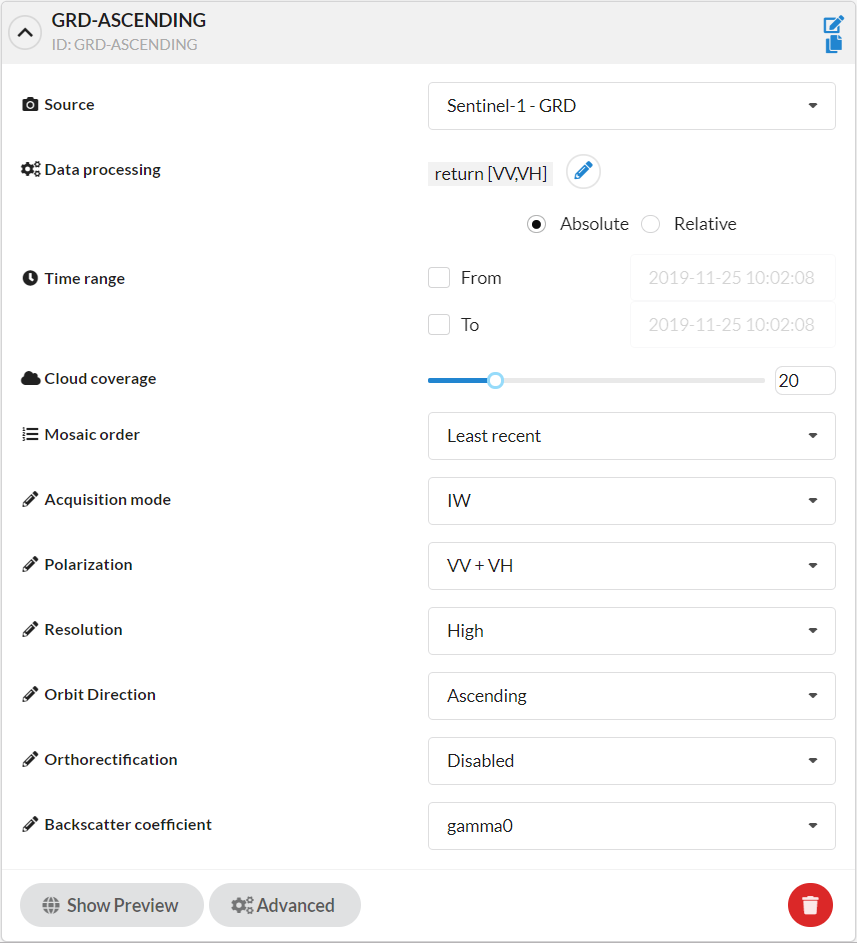Hello,
I am trying to download Gamma0 data for a given bounding box over a given time period.
I defined the layer in my configuration, and then use the Python API to issue a WCS request.
Layer:
bounds=[600000.0, 5689020.0, 610980.0, 5700000.0]
epsg=32631
resolution=20
start_date='2018-01-01'
end_date='2019-01-01'
layer = 'GRD-ASCENDING'
bbox = BBox(bbox=bounds, crs=CRS(epsg))
time_interval = (start_date, end_date)
data_source = DataSource.SENTINEL1_IW
wcs_req = WcsRequest(layer=layer,
bbox=bbox,
time=time_interval,
resx=f'{resolution}m',
resy=f'{resolution}m',
data_source=data_source,
instance_id=instance_id,
image_format=MimeType.TIFF_d32f)
data = np.array(wcs_req.get_data())
data results in an array of shape [355, 549, 549, 2]. However, out of 355 acquisitions that are queried, 194 have all pixels with value 1, which I suppose should be no data. Is there a way to exclude this data from my request, in order to avoid useless requests and processing units usage, as well as reduce arrays size beforehand and speed up the request?
For other points where for example there is no descending orbit, if I query for descending data I get arrays of ones… also in this case, what should I do to avoid this? Also puzzling the fact that if there are no descending orbit, why do I get arrays?
Would it be an option to query for both ascending and descending together and separate them afterwards? Is there some metadata I can get for the WCS request to distinguish them?
Thanks 🙂


